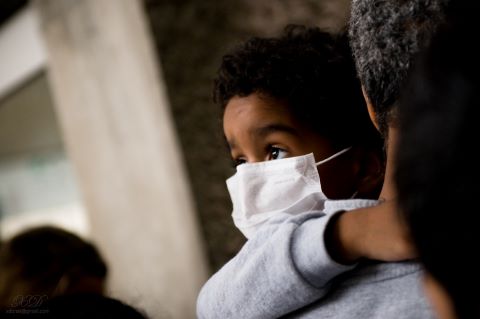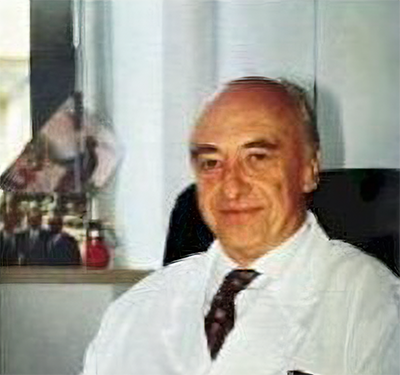Ilaria Pezone - Aversa - UOC Pediatria e Neonatologia - Ospedale San Giuseppe Moscati
Domenico Perri - Aversa - Direttore UOC Pediatria e Neonatologia - Ospedale San Giuseppe Moscati
Maria Vendemmia - Napoli - Terapia Intensiva Neonatale - Università Federico II
Respiratory syncytial virus
Respiratory syncytial virus (RSV) is a common virus that is easily transmitted and can cause respiratory diseases in infants, such as bronchiolitis and pneumonia. Considering an entire cohort of newborns, almost 100% of children are infected with RSV at least once within two years, more than 20% have respiratory disease requiring outpatient medical care, 6% have access to first aid and 4% are hospitalized, of which 1/5 in intensive care.
RSV spreads easily with coughing, sneezing and close physical contact. It can survive for several hours on solid surfaces, such as toys, cribs and cutlery, and can infect children if you bring your hands to your face after touching a contaminated object.
Nirsevimab
Nirsevimab is a long-acting monoclonal antibody, in single dose and fixed dosage, indicated in all infants and children at their first season of RSV for the prevention of respiratory disease by RSV. Nirsevimab, being a monoclonal antibody, offers rapid and direct protection against disease and does not require activation of the immune system (as is the case with vaccines).
Studio Harmonie
The HARMONIE study is a randomized open-ended, two-group clinical trial conducted in France, Germany and the United Kingdom. It is a pragmatic clinical study, that is, a study carried out under "real-word" conditions, similar to those of routine clinical practice: in fact, while a part of children received Nirsevimab as an experimental group, the other part consisting of the control group children has not received any intervention, as is the case in standard clinical practice.
The goal was to determine the effectiveness and safety of a single intramuscular injection of Nirsevimab compared to standard care (no intervention) to prevent hospitalizations associated with RSV in infants and children aged 12 months or less not eligible for the only treatment available to date. The latter is indicated in children at higher risk such as, for example, severe premature and children with certain pathologies, such as congenital heart disease and bronchopulmonary dysplasia.
The researchers included 8,058 children aged 12 months or younger, born healthy and full-term or born healthy and preterm with gestational age of at least 29 weeks, coming into their first season of RSV infection.
These children were randomized, according to a 1:1 scheme, to treatment with a single intramuscular injection of Nirsevimab (n=4.037) or to standard care (no intervention; n= 4.021) before or during the epidemic season of RSV.
The primary endpoint of efficacy was hospitalization for lower respiratory tract infection associated with RSV, defined as hospitalization and positive testing for RSV.
A secondary endpoint of efficacy was the very severe lower respiratory tract infection associated with RSV, defined as hospital admission for lower respiratory tract infection associated with RSV, together with oxygen saturation levels below 90% and the need for oxygen supplementation.
Analysis of the data showed that eleven newborns (0.3%) in the Nirsevimab group and 60 (1.5%) in the standard treatment group were hospitalized for lower respiratory tract infections caused by RSV; this is equivalent to saying that the treatment with nirsevimab had an effectiveness of 83.2% in the reduction of hospitalizations for LRTI from RSV.
Very serious infections of the lower airways associated with RSV were documented, instead, in 5 newborns (0.1%) of the Nirsevimab group and in 19 newborns (0.5%) of the group subjected to standard care; This is equivalent to saying that treatment with nirsevimab had an effectiveness of 75.7% in the prevention of severe LRTI from RSV.
The results of the study also showed a favorable safety profile, in fact adverse events related to treatment were recorded in 86 newborns (2.1%) of the Nirsevimab group.
The results of the HARMONIE study showed that Nirsevimab was able to avoid hospitalization for lower respiratory tract infection associated with RSV and very severe lower respiratory tract infections associated with RSV in a large population of healthy infants preterm and term in conditions almost similar to that of real life. The study also demonstrated the favorable safety profile of Nirsevimab, in line with the previously published works
BIBLIOGRAPHY
1. SB Drysdale, K. Cathie, F. Flamein, et al. Nirsevimab for Prevention of Hospitalizations Due to RSV in Infants. N Engl J Med 2023;389:2425-2435;
2. Azzari C, Baraldi E, Bonanni P, et al. Epidemiology and prevention of respiratory syncytial virus infections in children in Italy. Ital J Pediatr. 2021;47(1):198;
3. RSV immunisation for infants in Europe (ehma.org);
4. https://www.ema.europa.eu/en/medicines/human/EPAR/beyfortus


